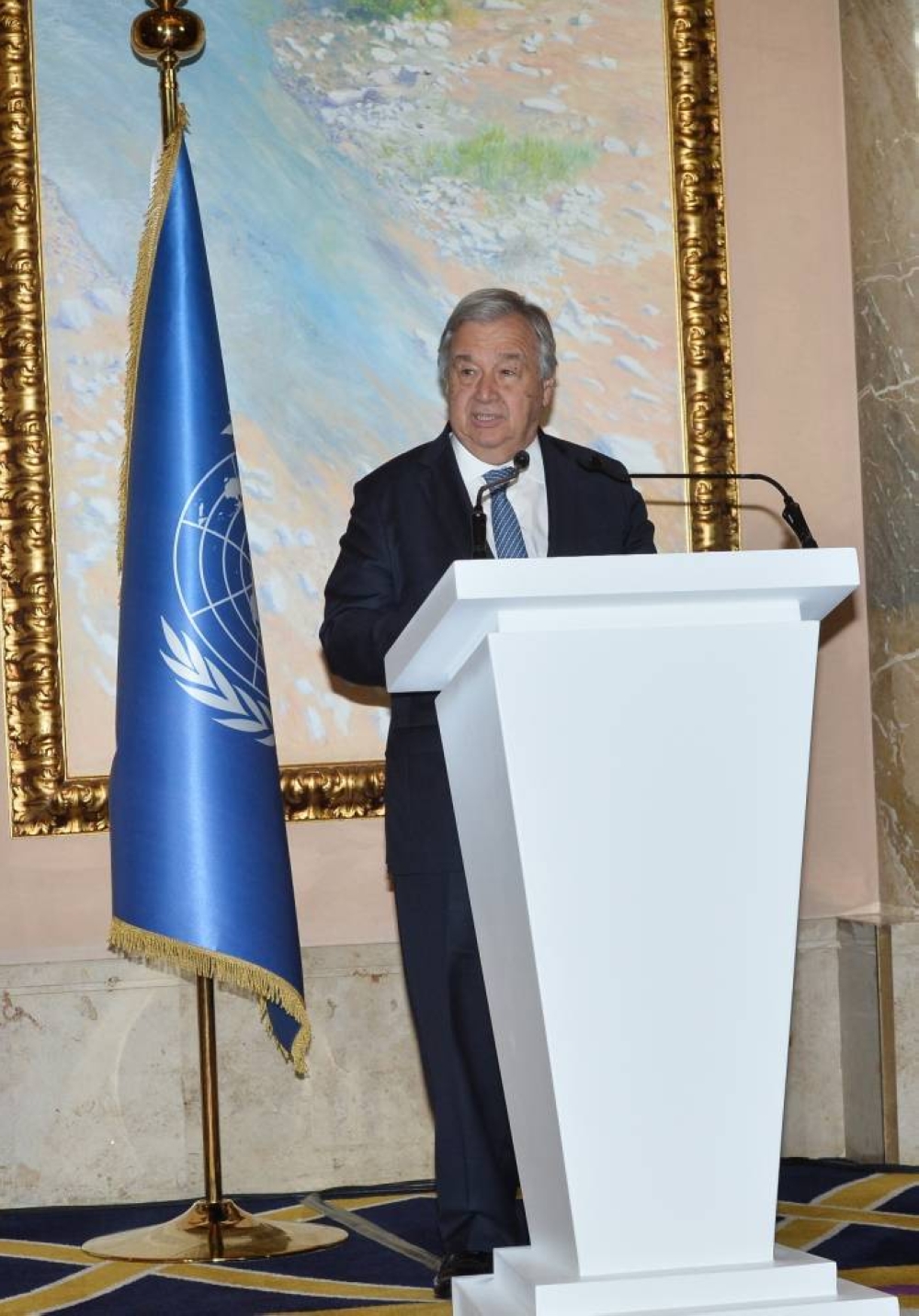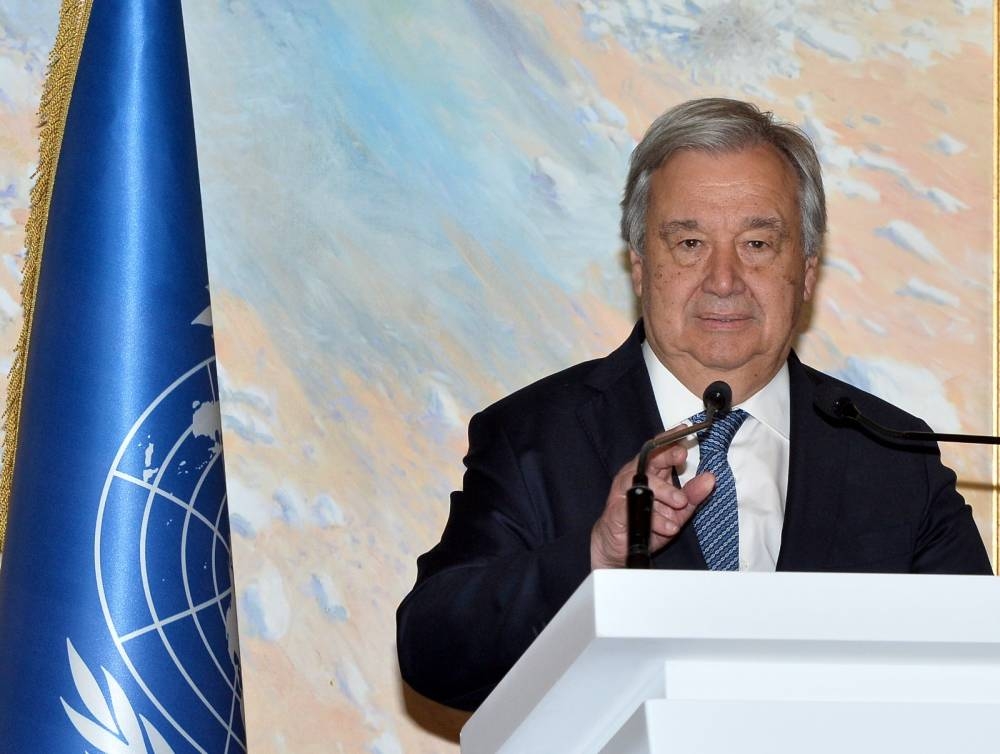Exuding confidence that the United Nations will achieve a common understanding within the international community on how to engage with the Taliban, the UN Secretary General Antonio Guterres Tuesday said in Doha that the world body would continue to engage to resolve Afghanistan’s problems.
“In order to achieve our objectives, we can’t disengage. Many called for engagement to be more effective and based on lessons we have learned from the past,” Guterres told the media after a meeting in Doha of special envoys on Afghanistan to reach points of commonality on key issues, such as human rights, in particular women's and girls' rights, inclusive governance, countering terrorism and drug trafficking.
The meeting, intended to achieve a common understanding within the international community on how to engage with the Taliban on these issues, was attended by China, France, Germany, India, Indonesia, Iran, Japan, Kazakhstan, Kyrgyzstan, Norway, Pakistan, Qatar, the Russian Federation, Saudi Arabia, Tajikistan, Türkiye, Turkmenistan, UAE, the UK, the US, Uzbekistan, the European Union (EU) and the Organisation of Islamic Cooperation (OIC).
The UN Secretary General noted that participants agreed on the need for a strategy of engagement that allows for the stabilisation of Afghanistan, but also addressing important concerns. Guterres, who came down heavily against the current ban on Afghan women working for the UN and national and international organisations, said the Taliban stand was unacceptable and put lives in jeopardy. “We will never be silent in the face of unprecedented, systemic attacks on women's and girls’ rights,” he said, noting that concerns over the country's stability were growing.
“The meeting wasn’t aimed at recognising the Taliban administration,” he said, adding that the UN would hold another meeting about Afghanistan. Asked whether he would meet with the Taliban, the UN Secretary General said that he would not rule out this possibility at the right time. “But today is not the right time,” he explained.
While terming Afghanistan's humanitarian crisis the biggest global crisis, the UN chief said that 90% of the Afghan people lived in poverty and 28mn people needed humanitarian aid to survive this year and 6mn Afghans were one step away from famine conditions while the fund was drying up.
"The humanitarian response plan is seeking $4.6bn and only $294mn or 6.4% of the total required funding has been received,” Guterres added.
Qatar
UN hopeful of reaching global consensus on dealing with Taliban
'UN will continue to engage to resolve Afghanistan’s problems'

United Nations Secretary General Antonio Guterres speaking to the press

United Nations Secretary General Antonio Guterres speaking to the press

